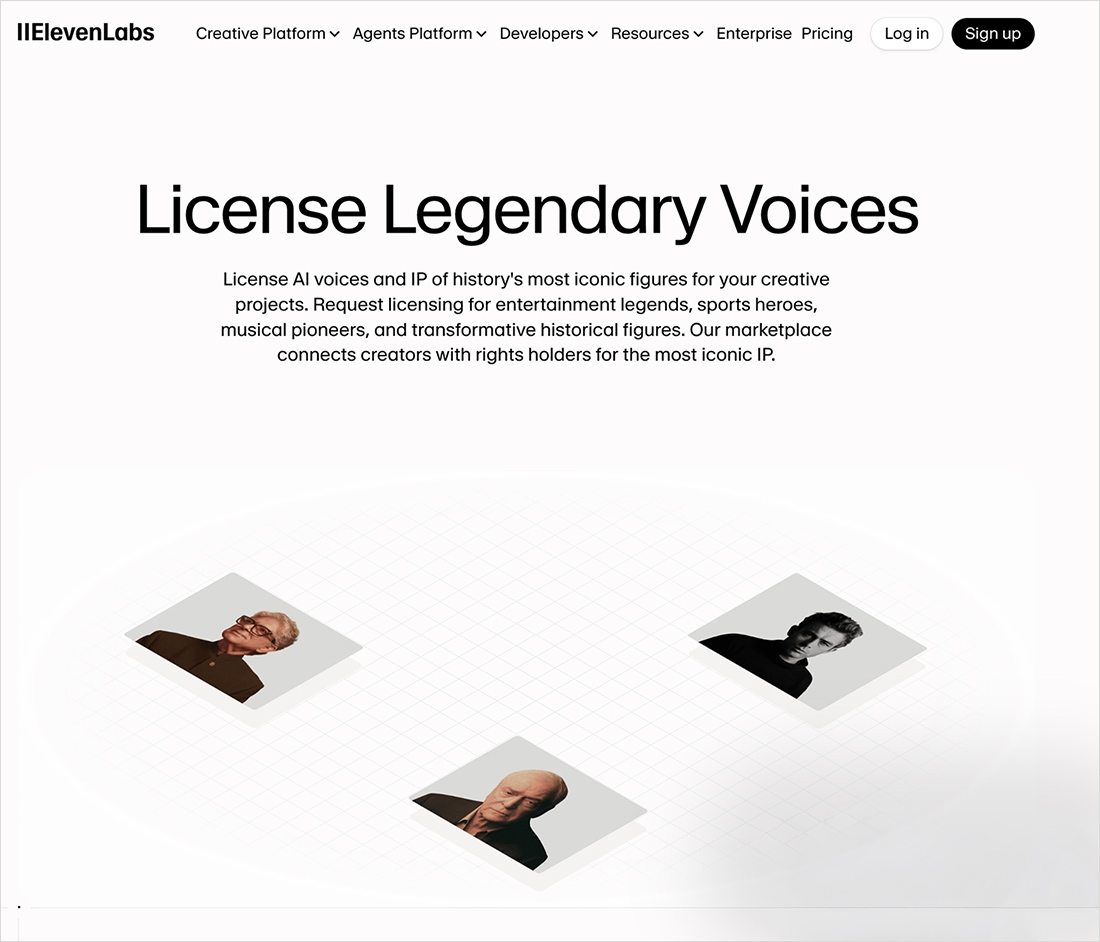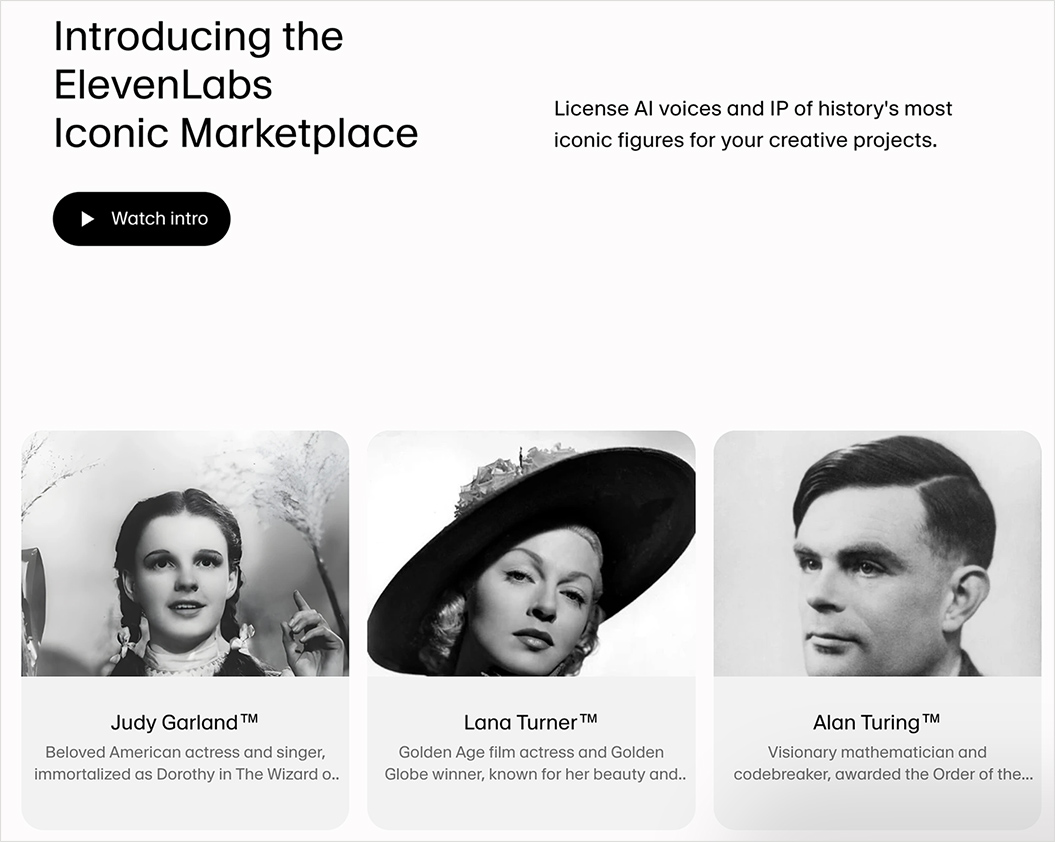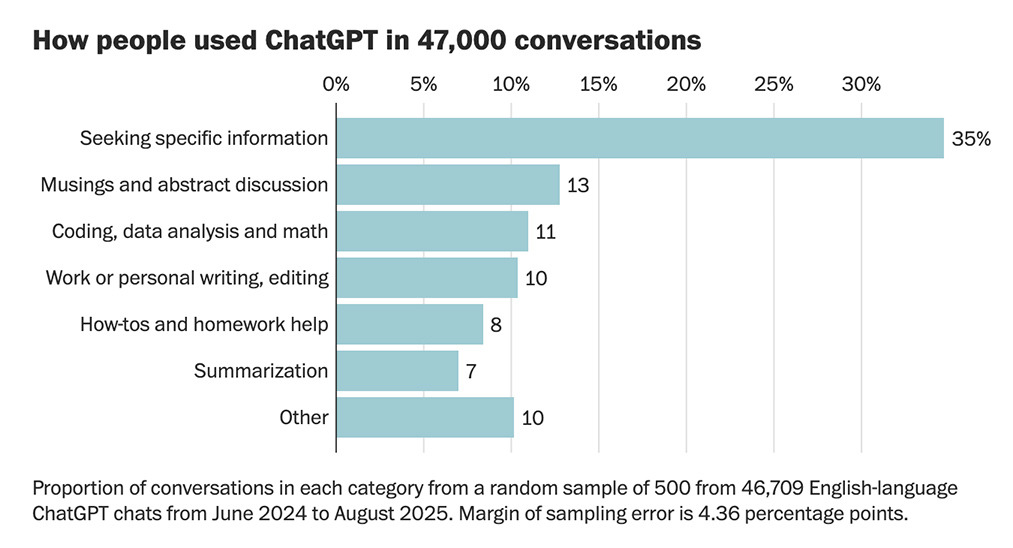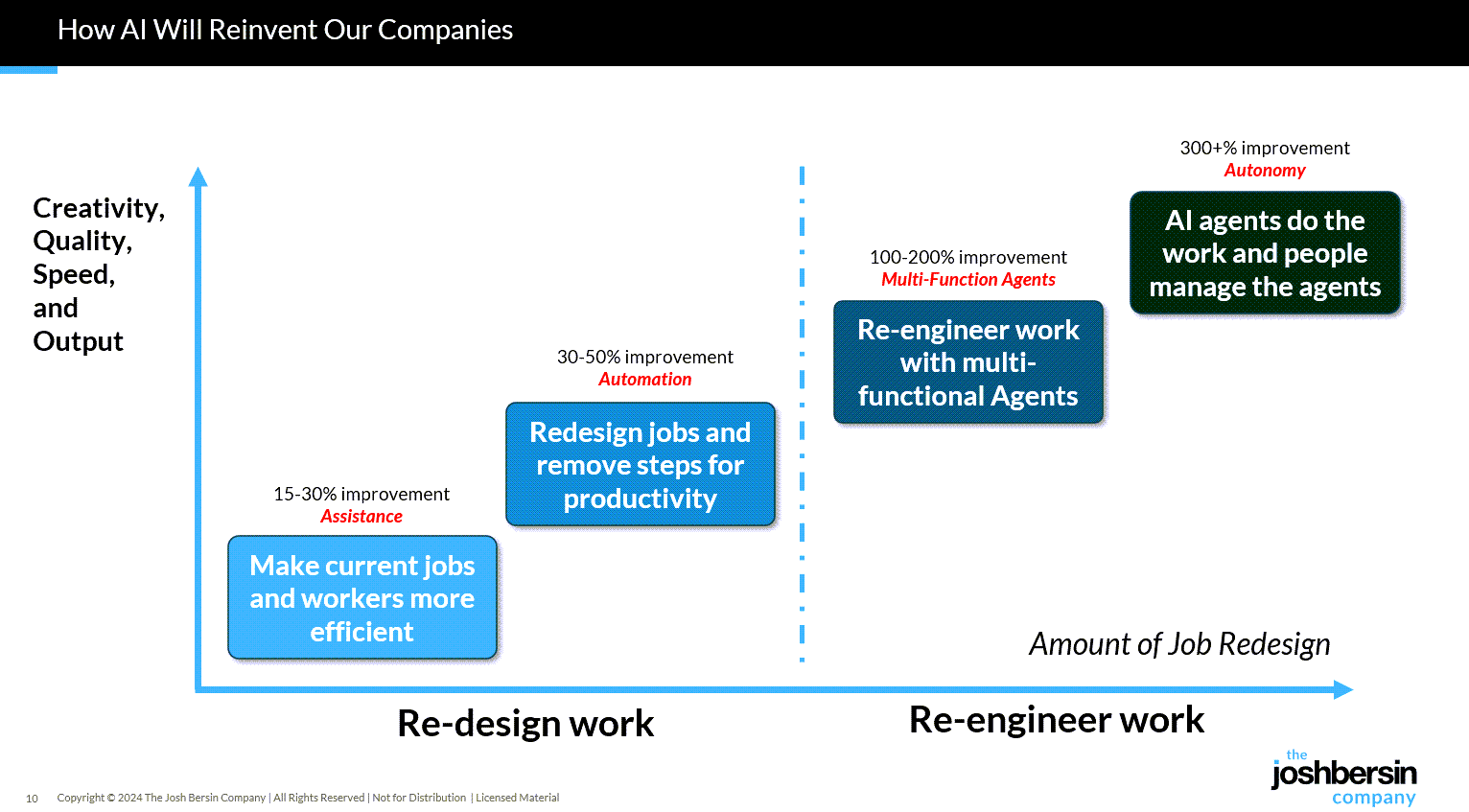What AI-Generated Voice Technology Means For Creators And Brands — from bitrebels.com by Ryan Mitchell
Voice has become one of the most influential elements in how digital content is experienced. From podcasts and videos to apps, ads, and interactive platforms, spoken audio shapes how messages are understood and remembered. In recent years, the rise of the ai voice generator has changed how creators and brands approach audio production, lowering barriers while expanding creative possibilities.
Rather than relying exclusively on traditional voice recording, many teams now use AI-generated voices as part of their content and brand strategies. This shift is not simply about efficiency; it reflects broader changes in how digital experiences are produced, scaled, and personalised.
The Future Role Of AI-Generated Voice
As AI voice technology continues to improve, its role in creative and brand workflows will likely expand. Future developments may include more adaptive voices that respond to context, audience behaviour, or emotional cues in real time. Rather than replacing traditional voice work, AI-generated voice is becoming another option in a broader creative toolkit, one that offers speed, flexibility, and accessibility.
Shoppers will soon be able to make purchases directly through Google’s Gemini app and browser.
Google and Walmart Join Forces to Shape the Future of Retail — from adweek.com by Lauren Johnson
At NRF, Sundar Pichai and John Furner revealed how AI and drones will shape shopping in 2026 and beyond
One of the biggest reveals is that shoppers will be able to purchase Walmart and Sam’s Club products through Google’s AI chatbot Gemini.
The Hard Part of Legal AI Isn’t the Technology — from linkedin.com by Colin S. Levy
Selecting AI tools for legal teams is no longer about novelty or experimentation. It is about aligning technology with judgment, workflows, and risk tolerance. Teams that approach AI with specificity, skepticism, and operational discipline place themselves in a far stronger position to capture real value and avoid unwelcome surprises once the demo environment disappears.
Addendum on 1/8/26:
- Legal Tech Spending Surges 9.7% As Firms Race to Integrate AI, Says Report On State Of Legal Market — from lawnext.com by Bob Ambrogi
How Your Learners *Actually* Learn with AI — from drphilippahardman.substack.com by Dr. Philippa Hardman
What 37.5 million AI chats show us about how learners use AI at the end of 2025 — and what this means for how we design & deliver learning experiences in 2026
Last week, Microsoft released a similar analysis of a whopping 37.5 million Copilot conversations. These conversation took place on the platform from January to September 2025, providing us with a window into if and how AI use in general — and AI use among learners specifically – has evolved in 2025.
Microsoft’s mass behavioural data gives us a detailed, global glimpse into what learners are actually doing across devices, times of day and contexts. The picture that emerges is pretty clear and largely consistent with what OpenAI’s told us back in the summer:
AI isn’t functioning primarily as an “answers machine”: the majority of us use AI as a tool to personalise and differentiate generic learning experiences and – ultimately – to augment human learning.
Let’s dive in!
Learners don’t “decide” to use AI anymore. They assume it’s there, like search, like spellcheck, like calculators. The question has shifted from “should I use this?” to “how do I use this effectively?”
8 AI Agents Every HR Leader Needs To Know In 2026 — from forbes.com by Bernard Marr
So where do you start? There are many agentic tools and platforms for AI tasks on the market, and the most effective approach is to focus on practical, high-impact workflows. So here, I’ll look at some of the most compelling use cases, as well as provide an overview of the tools that can help you quickly deliver tangible wins.
…
Some of the strongest opportunities in HR include:
- Workforce management, administering job satisfaction surveys, monitoring and tracking performance targets, scheduling interventions, and managing staff benefits, medical leave, and holiday entitlement.
- Recruitment screening, automatically generating and posting job descriptions, filtering candidates, ranking applicants against defined criteria, identifying the strongest matches, and scheduling interviews.
- Employee onboarding, issuing new hires with contracts and paperwork, guiding them to onboarding and training resources, tracking compliance and completion rates, answering routine enquiries, and escalating complex cases to human HR specialists.
- Training and development, identifying skills gaps, providing self-service access to upskilling and reskilling opportunities, creating personalized learning pathways aligned with roles and career goals, and tracking progress toward completion.
People Watched 700 Million Hours of YouTube Podcasts on TV in October — from bloomberg.com (this article is behind a paywall)
- That’s up from 400 million hours a year ago as podcasts become the new late-night TV.
- YouTube Wins Over TV Audience With Video Podcasts.
- YouTube is dominating in the living room.
AI Has Landed in Education: Now What? — from learningfuturesdigest.substack.com by Dr. Philippa Hardman
Here’s what’s shaped the AI-education landscape in the last month:
- The AI Speed Trap is [still] here: AI adoption in L&D is basically won (87%)—but it’s being used to ship faster, not learn better (84% prioritising speed), scaling “more of the same” at pace.
- AI tutors risk a “pedagogy of passivity”: emerging evidence suggests tutoring bots can reduce cognitive friction and pull learners down the ICAP spectrum—away from interactive/constructive learning toward efficient consumption.
- Singapore + India are building what the West lacks: they’re treating AI as national learning infrastructure—for resilience (Singapore) and access + language inclusion (India)—while Western systems remain fragmented and reactive.
- Agentic AI is the next pivot: early signs show a shift from AI as a content engine to AI as a learning partner—with UConn using agents to remove barriers so learners can participate more fully in shared learning.
- Moodle’s AI stance sends two big signals: the traditional learning ecosystem in fragmenting, and the concept of “user sovereignty” over by AI is emerging.
Four strategies for implementing custom AIs that help students learn, not outsource — from educational-innovation.sydney.edu.au by Kria Coleman, Matthew Clemson, Laura Crocco and Samantha Clarke; via Derek Bruff
For Cogniti to be taken seriously, it needs to be woven into the structure of your unit and its delivery, both in class and on Canvas, rather than left on the side. This article shares practical strategies for implementing Cogniti in your teaching so that students:
- understand the context and purpose of the agent,
- know how to interact with it effectively,
- perceive its value as a learning tool over any other available AI chatbots, and
- engage in reflection and feedback.
In this post, we discuss how to introduce and integrate Cogniti agents into the learning environment so students understand their context, interact effectively, and see their value as customised learning companions.
In this post, we share four strategies to help introduce and integrate Cogniti in your teaching so that students understand their context, interact effectively, and see their value as customised learning companions.
Collection: Teaching with Custom AI Chatbots — from teaching.virginia.edu; via Derek Bruff
The default behaviors of popular AI chatbots don’t always align with our teaching goals. This collection explores approaches to designing AI chatbots for particular pedagogical purposes.
Example/excerpt:
- Not Your Default Chatbot: Five Teaching Applications of Custom AI Bots
Agile Learning
derekbruff.org/2025/10/01/five-teaching-applications-of-custom-ai-chatbots/
7 Legal Tech Trends That Will Reshape Every Business In 2026 — from forbes.com by Bernard Marr
Here are the trends that will matter most.
- AI Agents As Legal Assistants
- AI As A Driver Of Business Strategy
- Automation In Judicial Administration
- Always-On Compliance Monitoring
- Cybersecurity As An Essential Survival Tool
- Predictive Litigation
- Compliance As Part Of The Everyday Automation Fabric
According to the Thomson Reuters Future Of Professionals report, most experts already expect AI to transform their work within five years, with many viewing it as a positive force. The challenge now is clear: legal and compliance leaders must understand the tools reshaping their field and prepare their teams for a very different way of working in 2026.
Addendum on 12/17/25:
- Top 10 legal tech episodes in 2025 — from lawyersweekly.com.au
With AI and legal technology at the forefront of the profession’s mind now more than ever, The Lawyers Weekly Show and our special series LawTech Talks delivered in-depth explorations of these game-changing topics. Now, we’re highlighting the 10 most downloaded episodes that sparked conversation across the legal tech community. - eCourtDate Winner Of “LegalOps Platform of the Year” In 2025 LegalTech Breakthrough Awards Program — from globenewswire.com
Prestigious Annual Awards Program Recognizes Companies and Products Driving Innovation in the Global Legal Industry
Beyond ChatGPT: Why In-House Counsel Need Purpose Built AI (Cecilia Ziniti, CEO – GC AI) — from tlpodcast.com
This episode features a conversation with Cecilia Ziniti, Co-Founder and CEO of GC.AI. Cecilia traces her career from the early days of the internet to founding an AI-driven legal platform for in-house counsel.
Cecilia shares her journey, starting as a paralegal at Yahoo in the early 2000s, working on nascent legal issues related to the internet. She discusses her time at Morrison & Foerster and her role at Amazon, where she was an early member of the Alexa team, gaining deep insight into AI’s potential before the rise of modern large language models (LLMs).
The core discussion centers on the creation of GC AI, a legal AI tool specifically designed for in-house counsel. Cecilia explains why general LLMs like ChatGPT are insufficient for professional legal work—lacking proper citation, context, and security/privilege protections. She highlights the app’s features, including enhanced document analysis (RAG implementation), a Word Add-in, and workflow-based playbooks to deliver accurate, client-forward legal analysis. The episode also touches on the current state of legal tech, the growing trend of bringing legal work in-house, and the potential for AI to shift the dynamics of the billable hour.
Law Firm 2.0: A Trillion-Dollar Market Begins To Move — from abovethelaw.com by Ken Crutchfield
The test cases for Law Firm 2.0 are arriving faster than many expected.
A move to separate legal advice from other legal services that don’t require advice is a big shift that would ripple through established firms and also test regulatory boundaries.
…
The LegalTech Fund (TLTF) sees a $1 trillion opportunity to reinvent legal services through the convergence of technology, regulatory changes, and innovation. TLTF calls this movement Law Firm 2.0, and the fund believes a reinvention will pave the way for entirely new, tech-enabled models of legal service delivery.
From Paper to Platform: How LegalTech Is Revolutionizing the Practice of Law — from markets.financialcontent.com by AB Newswire
For decades, practicing law has been a business about paper — contracts, case files, court documents, and floor-to-ceiling piles of precedent. But as technology transforms all aspects of modern-day business, law firms and in-house legal teams are transforming along with it. The development of LegalTech has revolutionized what was previously a paper-driven, manpower-intensive profession into a data-driven digital web of collaboration and automation.
Conclusion: Building the Future of Law
The practice of law has always been about accuracy, precedent, and human beings. Technology doesn’t alter that — it magnifies it. The shift to the platform from paper is about liberating lawyers from back-office tasks so they can concentrate on strategy, advocacy, and creativity.
By coupling intelligent automation with moral obligation, today’s firms are positioning the legal profession for a more intelligent, responsive industry. LegalTech isn’t about automation, it’s about empowering attorneys to practice at the speed of today’s business.
What Legal Can Learn from Other Industries’ AI Transformations — from jdsupra.com
Artificial intelligence has already redefined how industries like finance, healthcare, and supply chain operate — transforming once-manual processes into predictive, data-driven engines of efficiency.
Yet the legal industry, while increasingly open to innovation, still lags behind its peers in adopting automation at scale. As corporate legal departments face mounting pressure to do more with less, they have an opportunity to learn from how other sectors successfully integrated AI into their operations.
The message is clear: AI transformation doesn’t just change workflows — it changes what’s possible.
7 Legal Tech Trends To Watch In 2026 — from lexology.com
Small Language Models Are Changing Legal Tech: What That Means for Lawyers and Law Firms — from community.nasscom.in
The legal profession is at a turning point. Artificial intelligence tools are moving from novelty to everyday utility, and small language models, or SLMs, are a major reason why. For law firms and in-house legal teams that are balancing client confidentiality, tight budgets, and the need to move faster, SLMs offer a practical, high impact way to bring legal AI into routine practice. This article explains what SLMs are, why they matter to lawyers, where they fit in legal workflows, and how to adopt them responsibly.
Legal AI startup draws new $50 million Blackstone investment, opens law firm — from reuters.com by Sara Merken
NEW YORK, Nov 20 (Reuters) – Asset manager Blackstone (BX.N), opens new tab has invested $50 million in Norm Ai, a legal and compliance technology startup that also said on Thursday that it is launching an independent law firm that will offer “AI-native legal services.”
Lawyers at the new New York-based firm, Norm Law LLP, will use Norm Ai’s artificial intelligence technology to do legal work for Blackstone and other financial services clients, said Norm Ai founder and CEO John Nay.
Law School Toolbox Podcast Episode 531: What Law Students Should Know About New Legal Tech (w/Gabe Teninbaum) — from jdsupra.com
Today, Alison and Gabe Teninbaum — law professor and creator of SpacedRepetition.com — discuss how technology is rapidly transforming the legal profession, emphasizing the importance for law students and lawyers to develop technological competence and adapt to new tools and roles in the legal profession.
New York is the San Francisco of legal tech — from businessinsider.com by Melia Russell
- Legal tech ?? NYC.
- To win the market, startups say they need to be where the law firms and corporate legal chiefs are.
- Legora and Harvey are expanding their footprints in New York, as Clio hunts for office space.
Legal Tech Startups Expand in New York to Access Law Firms — from indexbox.io
Several legal technology startups are expanding their physical presence in New York City, according to a report from Legal tech NYC. The companies state that to win market share, they need to be located where major law firms and corporate legal departments are based.
Linklaters unveils 20-strong ‘AI lawyer’ team — from legalcheek.com by Legal Cheek
Magic Circle giant Linklaters has launched a team of 20 ‘AI Lawyers’ (yes, that is their actual job title) as it ramps up its commitment to artificial intelligence across its global offices.
The new cohort is a mix of external tech specialists and Linklaters lawyers who have decided to boost their legal expertise with advanced AI know-how. They will be placed into practice groups around the world to help build prompts, workflows and other tech driven processes that the firm hopes will sharpen client delivery.
I went to a closed-door retreat for top lawyers. The message was clear: Don’t fear AI — use it. — from businessinsider.com by Melia Russell
- AI is making its mark on law firms and corporate legal teams.
- Clients expect measurable savings, and firms are spending real money to deliver them.
- At TLTF Summit, Big Law leaders and legal-tech builders explored the future of the industry.
From Cost Center to Command Center: The Future of Litigation is Being Built In-House — from law.stanford.edu by Adam Rouse, Tamra Moore, Renee Meisel, Kassi Burns, & Olga Mack
Litigation isn’t going away, but who leads, drafts, and drives it is rapidly changing. Empirical research shows corporate legal departments have steadily expanded litigation management functions over the past decade. (Annual Litigation Trends Survey, Norton Rose Fulbright (2025)).
For decades, litigation lived squarely in the law firm domain. (Wald, Eli, Getting in and Out of the House: Career Trajectories of In-House Lawyers, Fordham Law Review, Vol. 88, No. 1765, 2020 (June 22, 2020)). Corporate legal departments played a responsive role: approving strategies, reviewing documents, and paying hourly rates. But through dozens of recent conversations with in-house legal leaders, legal operations professionals, and litigation specialists, a new reality is emerging. One in which in-house counsel increasingly owns the first draft, systematizes their litigation approach, and reshapes how outside counsel fits into the picture.
AI, analytics, exemplar libraries, playbooks, and modular document builders are not simply tools. They are catalysts for a structural shift. Litigation is becoming modular, data-informed, and orchestrated by in-house teams who increasingly want more than cost control. They want consistency, clarity, and leverage. This piece outlines five major trends from our qualitative research, predictions on their impact to the practice of law, and research questions that are worth considering to further understand these trends. A model is then introduced for understanding how litigation workflows and outside counsel relationships will evolve in the coming years.
Could Your Next Side Hustle Be Training AI? — from builtin.com by Jeff Rumage
As automation continues to reshape the labor market, some white-collar professionals are cashing in by teaching AI models to do their jobs.
Summary: Artificial intelligence may be replacing jobs, but it’s also creating some new ones. Professionals in fields like medicine, law and engineering can earn big money training AI models, teaching them human skills and expertise that may one day make those same jobs obsolete.
DEEP DIVE: The AI user interface of the future = Voice — from theneurondaily.com by Grant Harvey
PLUS: Gemini 3.0 and Microsoft’s new voice features
Here’s the thing: voice is finally good enough to replace typing now. And I mean actually good enough, not “Siri, play Despacito” good enough.
To Paraphrase Andrej Karpathy’s famous quote, “the hottest new programming language is English”, in this case, the hottest new user interface is talking.
The Great Convergence: Why Voice Is Having Its Moment
Three massive shifts just collided to make voice interfaces inevitable.
-
- First, speech recognition stopped being terrible. …
- Second, our devices got ears everywhere. …
- Third, and most importantly: LLMs made voice assistants smart enough to be worth talking to. …
Introducing group chats in ChatGPT — from openai.com
Collaborate with others, and ChatGPT, in the same conversation.
Update on November 20, 2025: Early feedback from the pilot has been positive, so we’re expanding group chats to all logged-in users on ChatGPT Free, Go, Plus and Pro plans globally over the coming days. We will continue refining the experience as more people start using it.
Today, we’re beginning to pilot a new experience in a few regions that makes it easy for people to collaborate with each other—and with ChatGPT—in the same conversation. With group chats, you can bring friends, family, or coworkers into a shared space to plan, make decisions, or work through ideas together.
Whether you’re organizing a group dinner or drafting an outline with coworkers, ChatGPT can help. Group chats are separate from your private conversations, and your personal ChatGPT memory is never shared with anyone in the chat.
Three Years from GPT-3 to Gemini 3 — from oneusefulthing.org by Ethan Mollick
From chatbots to agents
Three years ago, we were impressed that a machine could write a poem about otters. Less than 1,000 days later, I am debating statistical methodology with an agent that built its own research environment. The era of the chatbot is turning into the era of the digital coworker. To be very clear, Gemini 3 isn’t perfect, and it still needs a manager who can guide and check it. But it suggests that “human in the loop” is evolving from “human who fixes AI mistakes” to “human who directs AI work.” And that may be the biggest change since the release of ChatGPT.
Results May Vary — from aiedusimplified.substack.com by Lance Eaton, PhD
On Custom Instructions with GenAI Tools….
I’m sharing today about custom instructions and my use of them across several AI tools (paid versions of ChatGPT, Gemini, and Claude). I want to highlight what I’m doing, how it’s going, and solicit from readers to share in the comments some of their custom instructions that they find helpful.
I’ve been in a few conversations lately that remind me that not everyone knows about them, even some of the seasoned folks around GenAI and how you might set them up to better support your work. And, of course, they are, like all things GenAI, highly imperfect!
I’ll include and discuss each one below, but if you want to keep abreast of my custom instructions, I’ll be placing them here as I adjust and update them so folks can see the changes over time.
ElevenLabs just launched a voice marketplace — from elevenlabs.io; via theaivalley.com
Via the AI Valley:
Why does it matter?
AI voice cloning has already flooded the internet with unauthorized imitations, blurring legal and ethical lines. By offering a dynamic, rights-secured platform, ElevenLabs aims to legitimize the booming AI voice industry and enable transparent, collaborative commercialization of iconic IP.
.
[GIFTED ARTICLE] How people really use ChatGPT, according to 47,000 conversations shared online — from by Gerrit De Vynck and Jeremy B. Merrill
What do people ask the popular chatbot? We analyzed thousands of chats to identify common topics discussed by users and patterns in ChatGPT’s responses.
.
Data released by OpenAI in September from an internal study of queries sent to ChatGPT showed that most are for personal use, not work.
Emotional conversations were also common in the conversations analyzed by The Post, and users often shared highly personal details about their lives. In some chats, the AI tool could be seen adapting to match a user’s viewpoint, creating a kind of personalized echo chamber in which ChatGPT endorsed falsehoods and conspiracy theories.
Lee Rainie, director of the Imagining the Digital Future Center at Elon University, said his own research has suggested ChatGPT’s design encourages people to form emotional attachments with the chatbot. “The optimization and incentives towards intimacy are very clear,” he said. “ChatGPT is trained to further or deepen the relationship.”
Per The Rundown: OpenAI just shared its view on AI progress, predicting systems will soon become smart enough to make discoveries and calling for global coordination on safety, oversight, and resilience as the technology nears superintelligent territory.
The details:
- OpenAI said current AI systems already outperform top humans in complex intellectual tasks and are “80% of the way to an AI researcher.”
- The company expects AI will make small scientific discoveries by 2026 and more significant breakthroughs by 2028, as intelligence costs fall 40x per year.
- For superintelligent AI, OAI said work with governments and safety agencies will be essential to mitigate risks like bioterrorism or runaway self-improvement.
- It also called for safety standards among top labs, a resilience ecosystem like cybersecurity, and ongoing tracking of AI’s real impact to inform public policy.
Why it matters: While the timeline remains unclear, OAI’s message shows that the world should start bracing for superintelligent AI with coordinated safety. The company is betting that collective safeguards will be the only way to manage risk from the next era of intelligence, which may diffuse in ways humanity has never seen before.
Which linked to:
- AI progress and recommendations — from openai.com
AI is unlocking new knowledge and capabilities. Our responsibility is to guide that power toward broad, lasting benefit.
From DSC:
I hate to say this, but it seems like there is growing concern amongst those who have pushed very hard to release as much AI as possible — they are NOW worried. They NOW step back and see that there are many reasons to worry about how these technologies can be negatively used.
Where was this level of concern before (while they were racing ahead at 180 mph)? Surely, numerous and knowledgeable people inside those organizations warned them about the destructive/downside of these technologies. But their warnings were pretty much blown off (at least from my limited perspective).
The state of AI in 2025: Agents, innovation, and transformation — from mckinsey.com
Key findings
- Most organizations are still in the experimentation or piloting phase: Nearly two-thirds of respondents say their organizations have not yet begun scaling AI across the enterprise.
- High curiosity in AI agents: Sixty-two percent of survey respondents say their organizations are at least experimenting with AI agents.
- Positive leading indicators on impact of AI: Respondents report use-case-level cost and revenue benefits, and 64 percent say that AI is enabling their innovation. However, just 39 percent report EBIT impact at the enterprise level.
- High performers use AI to drive growth, innovation, and cost: Eighty percent of respondents say their companies set efficiency as an objective of their AI initiatives, but the companies seeing the most value from AI often set growth or innovation as additional objectives.
- Redesigning workflows is a key success factor: Half of those AI high performers intend to use AI to transform their businesses, and most are redesigning workflows.
- Differing perspectives on employment impact: Respondents vary in their expectations of AI’s impact on the overall workforce size of their organizations in the coming year: 32 percent expect decreases, 43 percent no change, and 13 percent increases.
Marble: A Multimodal World Model — from worldlabs.ai
Spatial intelligence is the next frontier in AI, demanding powerful world models to realize its full potential. World models should reconstruct, generate, and simulate 3D worlds; and allow both humans and agents to interact with them. Spatially intelligent world models will transform a wide variety of industries over the coming years.
Two months ago we shared a preview of Marble, our World Model that creates 3D worlds from image or text prompts. Since then, Marble has been available to an early set of beta users to create 3D worlds for themselves.
Today we are making Marble, a first-in-class generative multimodal world model, generally available for anyone to use. We have also drastically expanded Marble’s capabilities, and are excited to highlight them here:
Gen AI Is Going Mainstream: Here’s What’s Coming Next — from joshbersin.com by Josh Bersin
I just completed nearly 60,000 miles of travel across Europe, Asia, and the Middle East meeting with hundred of companies to discuss their AI strategies. While every company’s maturity is different, one thing is clear: AI as a business tool has arrived: it’s real and the use-cases are growing.
A new survey by Wharton shows that 46% of business leaders use Gen AI daily and 80% use it weekly. And among these users, 72% are measuring ROI and 74% report a positive return. HR, by the way, is the #3 department in use cases, only slightly behind IT and Finance.
What are companies getting out of all this? Productivity. The #1 use case, by far, is what we call “stage 1” usage – individual productivity.
From DSC:
Josh writes: “Many of our large clients are now implementing AI-native learning systems and seeing 30-40% reduction in staff with vast improvements in workforce enablement.”
While I get the appeal (and ROI) from management’s and shareholders’ perspective, this represents a growing concern for employment and people’s ability to earn a living.
And while I highly respect Josh and his work through the years, I disagree that we’re over the problems with AI and how people are using it:
Two years ago the NYT was trying to frighten us with stories of AI acting as a romance partner. Well those stories are over, and thanks to a $Trillion (literally) of capital investment in infrastructure, engineering, and power plants, this stuff is reasonably safe.
Those stories are just beginning…they’re not close to being over.
“… imagine a world where there’s no separation between learning and assessment…” — from aiedusimplified.substack.com by Lance Eaton, Ph.D. and Tawnya Means
An interview with Tawnya Means
So let’s imagine a world where there’s no separation between learning and assessment: it’s ongoing. There’s always assessment, always learning, and they’re tied together. Then we can ask: what is the role of the human in that world? What is it that AI can’t do?
…
Imagine something like that in higher ed. There could be tutoring or skill-based work happening outside of class, and then relationship-based work happening inside of class, whether online, in person, or some hybrid mix.
The aspects of learning that don’t require relational context could be handled by AI, while the human parts remain intact. For example, I teach strategy and strategic management. I teach people how to talk with one another about the operation and function of a business. I can help students learn to be open to new ideas, recognize when someone pushes back out of fear of losing power, or draw from my own experience in leading a business and making future-oriented decisions.
But the technical parts such as the frameworks like SWOT analysis, the mechanics of comparing alternative viewpoints in a boardroom—those could be managed through simulations or reports that receive immediate feedback from AI. The relational aspects, the human mentoring, would still happen with me as their instructor.
Part 2 of their interview is here:













